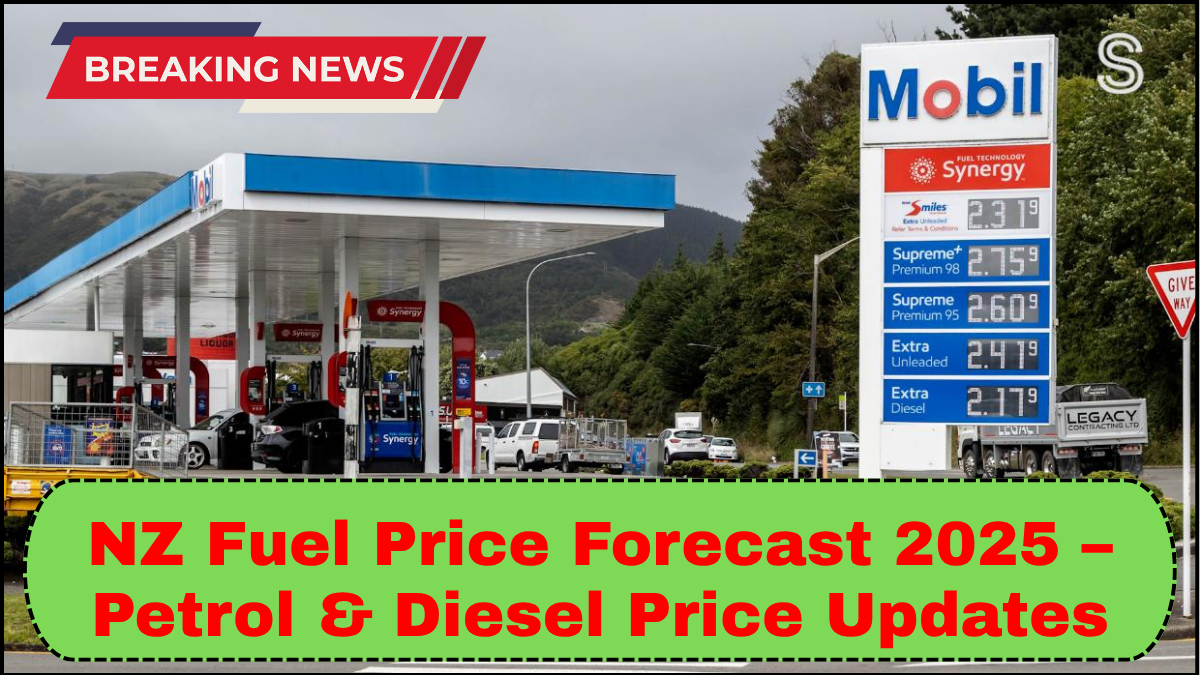As New Zealand navigates its energy transition and economic recovery, fuel prices are expected to remain a hot topic in 2025. Whether you’re a commuter, fleet operator, or business owner, understanding the NZ Fuel Price Forecast 2025 is essential for planning and budgeting. This report breaks down what to expect for petrol and diesel prices in NZ, highlighting key factors shaping the forecast and providing the latest fuel tax updates.

Global Market Trends Will Heavily Influence NZ Fuel Prices
New Zealand relies on global markets for refined oil products, so international trends play a critical role in determining local prices. For 2025, a few major influences stand out:
- OPEC+ Production Strategies: The Organization of the Petroleum Exporting Countries (OPEC+) will continue to control global supply, potentially tightening output to stabilize or raise crude prices.
- Geopolitical Tensions: Ongoing conflicts or instability in oil-producing regions such as the Middle East or Eastern Europe could disrupt supply chains, adding volatility to prices.
- Demand Recovery Post-COVID: While 2024 saw global demand nearing pre-pandemic levels, 2025 could mark full recovery in transport and aviation fuel demand, especially in emerging economies.
These global forces will shape the base cost of fuel before taxes and local logistics are factored in.
NZ-Specific Factors Affecting Petrol and Diesel Prices
While global markets set the foundation, domestic policies and logistical considerations tailor the final price you see at the pump.
- Exchange Rate Sensitivity: The strength or weakness of the New Zealand dollar against the US dollar directly impacts import costs. A weaker NZD generally leads to higher fuel prices.
- Refining and Import Costs: With the closure of the Marsden Point Oil Refinery, NZ now imports 100% of its refined fuel. This increases vulnerability to shipping costs, freight delays, and external refinery issues.
- Carbon Charges and Fuel Levies: The Emissions Trading Scheme (ETS) and other climate policies add cost to fossil fuel use. In 2025, further adjustments to ETS charges may be introduced as part of New Zealand’s climate goals.
Fuel Tax Update: What to Expect in 2025
One of the key drivers of local fuel prices is taxation. The government regularly revises fuel excise duties (FED), road user charges (RUC), and ETS levies. Here’s what we know so far:
- Fuel Excise Duty: While no major hikes have been confirmed yet, a gradual increase to keep up with infrastructure demands is likely. Watch for updates in the Budget 2025 announcement.
- ETS Pricing: There is potential for ETS costs to rise as the government tightens carbon budgets, impacting both petrol and diesel prices in NZ.
- RUC on Light Vehicles: A long-discussed reform may bring petrol-powered light vehicles under a RUC-style pricing model, similar to what diesel users already face.
These changes could subtly but steadily raise prices across 2025.
Price Forecast: Petrol and Diesel in NZ by Mid to Late 2025
Analysts currently project a moderate but steady increase in fuel prices through 2025, assuming no major global disruptions. Here’s a general outlook:
- Petrol: Expected to range between $2.60 and $2.90 per litre nationwide, depending on region and brand.
- Diesel: Forecasted to remain more volatile, ranging from $2.40 to $2.85 per litre, due to higher exposure to freight demand and seasonal use.
Urban centres like Auckland and Wellington will likely experience slightly higher prices due to regional fuel levies and distribution costs.
Strategies for Consumers and Businesses
With uncertain pricing on the horizon, individuals and companies can take steps to mitigate fuel costs:
- Adopt Fuel-Efficient Practices: Regular vehicle maintenance, smoother driving habits, and route planning can yield noticeable savings.
- Explore Alternative Fuels: Electric and hybrid vehicles continue to gain traction. While upfront costs are higher, the savings on petrol or diesel can offset the difference over time.
- Lock In Bulk Rates: Businesses operating fleets may benefit from contracts or fuel cards that offer fixed or discounted pricing.
Final Thoughts
The NZ Fuel Price Forecast 2025 points to a dynamic year influenced by global markets, local policy changes, and environmental targets. While fuel prices are set to trend upward, understanding the factors at play can help individuals and businesses make informed decisions. Keep an eye on government updates for the latest fuel tax updates, and consider long-term strategies to reduce reliance on petrol and diesel in NZ.
FAQ
Q: Will fuel prices go down in 2025?
A: Unlikely. Most indicators suggest a gradual increase, driven by global demand recovery, higher carbon costs, and potential tax adjustments.
Q: How are diesel prices in NZ different from petrol prices?
A: Diesel is generally cheaper at the pump due to lower excise duties but comes with road user charges (RUC) that petrol vehicles don’t currently pay.
Q: What can I do to save on fuel in 2025?
A: Opt for fuel-efficient vehicles, drive smartly, explore public transport, or consider switching to EVs where practical.
Q: Are there fuel subsidies in New Zealand?
A: As of now, there are no broad fuel subsidies. Temporary relief measures like tax reductions have been introduced in the past but are not guaranteed for 2025.
Q: When will the next major fuel tax update happen?
A: Budget 2025 is expected to outline any upcoming changes to fuel excise, ETS pricing, or RUC structures.
click here to learn more